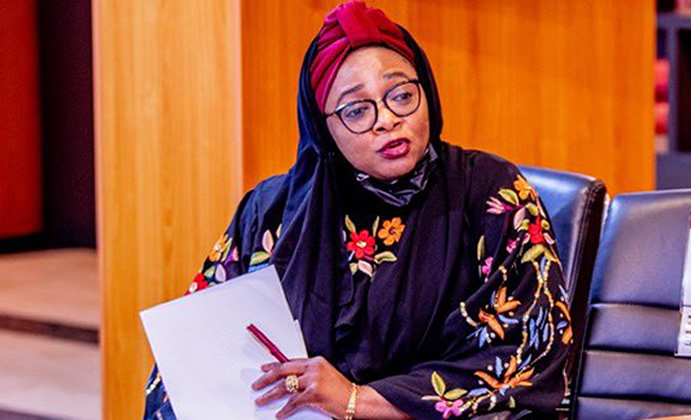The Federal Government and stakeholders have validated and adopted the first-ever National Policy on Menstrual Health and Hygiene Management (MHHM) to tackle challenges affecting women and girls.
Hajiya Imaan Sulaiman-Ibrahim, Minister of Women Affairs and Social Development, at the validation meeting on Friday in Abuja, described the policy as a step towards ensuring menstruation does not limit any woman or girl-child.
Sulaiman-Ibrahim, represented by Dr Maryam Keshinro, noted that the recent waivers on sanitary towels by President Bola Tinubu, showed his deep sensitivity to gender and public health matters.
She noted that women aged 15 to 49 constitute about 25 to 30 per cent of the country’s population, meaning tens of millions of Nigerians manage menstruation monthly.
“Alarmingly, 15 per cent of girls aged 15 to 19 are already mothers or pregnant, and over 7.3 million adolescent girls and women suffer from undernutrition.
“With 55 per cent affected by anaemia; conditions that can be exacerbated by poor menstrual hygiene and lack of affordable sanitary products,” she said.
She explained that these realities further justify the urgency of the national policy validation, adding that menstrual health is not just a women’s issue; but a family, community, and national development issue.
“Every month, from bustling cities like Lagos, Abuja, Port Harcourt, and Kano, to remote villages in Borno, Benue, Cross River, and Sokoto, as well as IDP camps in Maiduguri, Zamfara, and Adamawa, millions of women and girls experience menstruation.
“It is a normal biological process that should never be a source of shame, stigma, or economic hardship,” she said.
The minister highlighted inadequate access to sanitary products, poor WASH infrastructure, lack of accurate information, and persistent cultural taboos as factors that have contributed to exclusion, absenteeism from school, and preventable health challenges.
She added that the development of the policy will address these realities; break the silence, eliminate stigma, and embed MHHM into the national development agenda across health, education, water, sanitation, and gender sectors.
According to her, the policy will set a clear vision by 2030 which includes that no girl in Nigeria should have to choose between managing her menstruation and pursuing her education.
“No woman should be hindered in her personal or professional development because of menstruation; and no community should sustain stigma or exclusion linked to it.
“Implementation will require strong collaboration across sectors, political will, and active participation from states, communities, and development partners,” she said.
The minister, therefore, expressed appreciation to partners; particularly Population Services International and WaterAid Nigeria for their support in addressing menstrual health and hygiene challenges.
Also, Mrs Fifi Ogbondeminu, Acting Country Representative, Population Services International (PSI) Nigeria, said the event marks a milestone towards ensuring that menstruation is no longer a silent burden but an issue addressed with dignity, empathy, and urgency
Ogbondeminu, represented by Abdulhameed Adediran, Team Lead for Menstrual Health Initiatives at PSI Nigeria, said menstrual health is a human rights issue, a gender equality issue, and a development issue.
She noted that through PSI’s Menstrual Health No Wahala (MH-NoW) programme, the organisation provided women and girls with affordable menstrual products, age-appropriate education and enabling environments that break stigma.
She emphasised the need to ensure the availability of low-cost menstrual products across rural and urban areas, integrating menstrual health into school and community programmes, and empowering girls to stay in education without shame or interruption.
Also, Evelyn Mere, Country Director, WaterAid Nigeria, noted that the policy will also improve access to essential infrastructure including clean water, sanitation facilities, waste disposal systems and hygiene education.
Mere, represented by Dr Theodora Ngozika-Igboaneka, Policy and Advocacy Manager, said the policy is a powerful signal of commitment to human rights, health, dignity and empowerment of girls and women across the country.
“At WaterAid Nigeria, we have seen firsthand what changes when communities address menstrual health properly. Schools where girls no longer miss classes. Workplaces where women participate fully.
“Communities where the silence and shame around menstruation give way to open, practical support,” she said.
Also, Mrs Mabel Adinya-Ade, Consultant on the Development of the National Policy on MHHM, emphasised that its objective is to provide a comprehensive framework to improve access to safe menstruation for vulnerable women and girls.





